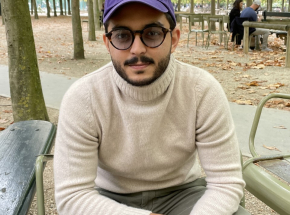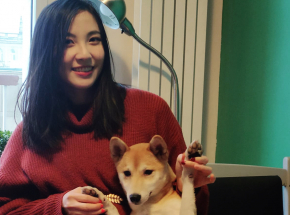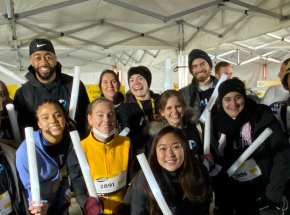- About AUP
- History of AUP
- Mission & Core Values
- Vision and Leadership
- AUP Recognition
- Alumni Success
- Campus Development
- Arts at AUP
- Policies & Guidelines
- Academics
- Undergraduate
- Graduate Programs
- MA in Diplomacy and International Law
- MA in Global Communications
- MSc in Human Rights and Data Science
- MA in International Affairs
- MA in International Affairs, Conflict Resolution, and Civil Society Development
- MSc in International Management
- MSc in Strategic Brand Management
- Find Your Thesis Advisor
- Previous Programs
- Cultural Program
- Faculty
- Summer School
- Research Centers
- The Center for Critical Democracy Studies
- Upcoming Events
- Research Projects
- Fellows’ Publications
- Publishing
- Curriculum
- Community
- Partnerships
- Visiting Scholars
- CCDS Highlights
- Atelier de Théorie Politique – Paris
- Critical Theory 101: Future Directions and New Challenges
- Martti Koskenniemi on “The Law of International Society: A Road not Taken”
- Academic Freedom Symposium
- Tocqueville Colloque 2023
- Violent Turns Conference
- Degenerations of Democracy
- DEMOS21 Inaugural Event
- What Demos for the 21st Century?
- The Paris Centennial Conference
- Justice Stephen Breyer
- Civic Jazz - The Launch of the Center
- Past Events
- FR
- The Center for Writers and Translators
- The George and Irina Schaeffer Center for the Study of Genocide, Human Rights and Conflict Prevention
- The Joy and Edward Frieman Environmental Science Center
- The Center for Media, Communication & Global Change
- The Center for Critical Democracy Studies
- Departments
- Academic Resources
- Academic Affairs
- Academic Calendar
- Academic Resource Center
- Library
- Registrar's Office
- Teaching and Learning Center
- Accessibility & Accommodation Services
- AI@AUP: A Campus-Level Initiative
- Quai D'Orsay Learning Commons
- Paris as Classroom
- ACE
- Admissions
- Student Life
- Campus
- Student Leadership & Involvement
- Paris
- Support Services
- Student Life Help Desk
- Student Accounting Services
- Student Immigration Services
- Student Grievance Procedure
- Diversity and Inclusion
- Health & Well-being
- Digital Student Handbook
- News
- Events
- AUP Giving
- Housing Offer for 2025-2026
- IT Services
- Alumni
- About AUP
- History of AUP
- Mission & Core Values
- Vision and Leadership
- AUP Recognition
- Alumni Success
- Campus Development
- Arts at AUP
- Policies & Guidelines
- Academics
- Undergraduate
- Graduate Programs
- MA in Diplomacy and International Law
- MA in Global Communications
- MSc in Human Rights and Data Science
- MA in International Affairs
- MA in International Affairs, Conflict Resolution, and Civil Society Development
- MSc in International Management
- MSc in Strategic Brand Management
- Find Your Thesis Advisor
- Previous Programs
- Cultural Program
- Faculty
- Summer School
- Research Centers
- The Center for Critical Democracy Studies
- Upcoming Events
- Research Projects
- Fellows’ Publications
- Publishing
- Curriculum
- Community
- Partnerships
- Visiting Scholars
- CCDS Highlights
- Atelier de Théorie Politique – Paris
- Critical Theory 101: Future Directions and New Challenges
- Martti Koskenniemi on “The Law of International Society: A Road not Taken”
- Academic Freedom Symposium
- Tocqueville Colloque 2023
- Violent Turns Conference
- Degenerations of Democracy
- DEMOS21 Inaugural Event
- What Demos for the 21st Century?
- The Paris Centennial Conference
- Justice Stephen Breyer
- Civic Jazz - The Launch of the Center
- Past Events
- FR
- The Center for Writers and Translators
- The George and Irina Schaeffer Center for the Study of Genocide, Human Rights and Conflict Prevention
- The Joy and Edward Frieman Environmental Science Center
- The Center for Media, Communication & Global Change
- The Center for Critical Democracy Studies
- Departments
- Academic Resources
- Academic Affairs
- Academic Calendar
- Academic Resource Center
- Library
- Registrar's Office
- Teaching and Learning Center
- Accessibility & Accommodation Services
- AI@AUP: A Campus-Level Initiative
- Quai D'Orsay Learning Commons
- Paris as Classroom
- ACE
- Admissions
- Student Life
- Campus
- Student Leadership & Involvement
- Paris
- Support Services
- Student Life Help Desk
- Student Accounting Services
- Student Immigration Services
- Student Grievance Procedure
- Diversity and Inclusion
- Health & Well-being
- Digital Student Handbook
- News
- Events
- AUP Giving
- Housing Offer for 2025-2026
- IT Services
- Alumni
Faculty
Professor Valeonti
Department of Economics and Management
Professor Valeonti
When did you arrive at AUP?
I arrived at AUP in the Fall of 2021. Before that, I was at both the Sorbonne and Duke University, where I had been teaching, studying and writing on the economics of money and banking through a framework of the history of ideas and policy. One of the things that first drew me to AUP was its interdisciplinary approach to scholarship. I have always tried to blend disciplines in my own research, and I appreciate AUP’s attempt to build a strong interdisciplinary community. I was also attracted by the University’s international environment, especially given the American angle of my scholarship.
You trained as an economist, but you also have a historical focus. What form does this take?
I read and write about the history of political economy. I am particularly interested in the history of monetary ideas and policies in the United States in the 19th century. My research focuses on the interplay between economic theory and policy and visions of economic development in the context of the monetary policy debates of the US reconstruction period. The general aim of my scholarship is to shed light on the ideas behind the economic policies that built American capitalism.
How do you approach teaching in the classroom?
My practice is to teach the standard economics curriculum, but with added dashes of historical context. My history background helps me give students concrete examples in the classroom; in my introductory course on macroeconomics, for example, when we discuss the 2008–10 financial crisis, I offer historical precedents from similar periods of flexible exchange rates and international financial integration and discuss financial crises from earlier eras of globalization. I also like building links with other disciplines in which students have classes at AUP. For example, when introducing the notion of money in my macroeconomics class, I explain how anthropologists, legal scholars, historians and economists approach money from different perspectives.
What do you most value about your AUP experience?
Being at AUP offers unique opportunities to create classes in collaboration with faculty from different departments. For example: we are planning a class on the economics and literature of money and debt. I also prize the diversity of our community. I learn a lot from students and colleagues due to both their broad, interdisciplinary training and their cultural backgrounds. Such learning experiences are made possible in large part because the University itself is dedicated to an intimate learning environment, both in supporting academic exchanges between professors and in guaranteeing small class sizes. The fact that my classes have a maximum of 25 students in them provides a lot of space for me to personalize what I teach to students’ interests and needs.
Related
-

Shadi Ayoubi ’19
Alumnus
Read MoreShadi Ayoubi ’19
Alumnus
I encourage anyone looking to go into economics to make the most of the liberal arts program.
-

Julie Hu ’18
Alumna
Read MoreJulie Hu ’18
Alumna
My favorite memories of AUP have to do with all the people I met there: peers, friends and professors.
-

Course des Lumières
Paris as Classroom
Read MoreCourse des Lumières
Paris as Classroom
Participants are provided with a light-up baton to carry throughout, symbolizing the movement’s aim of “lighting up the night against cancer.”
